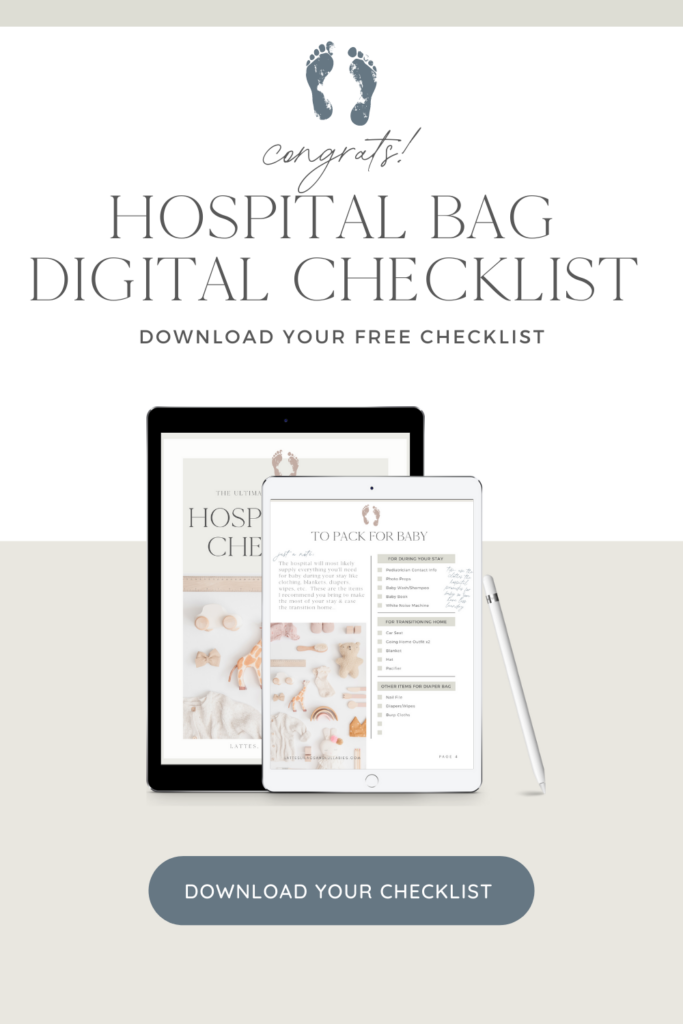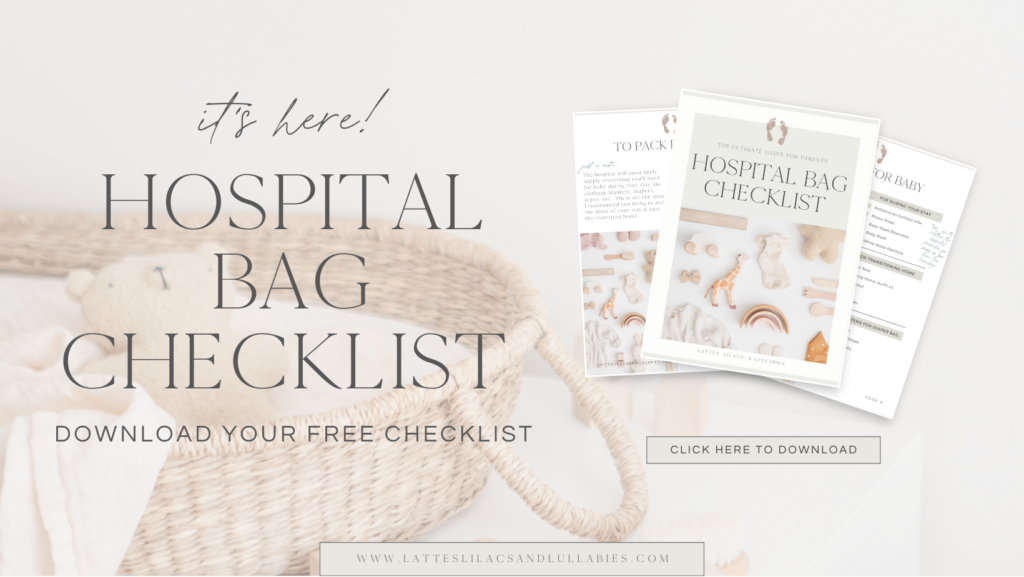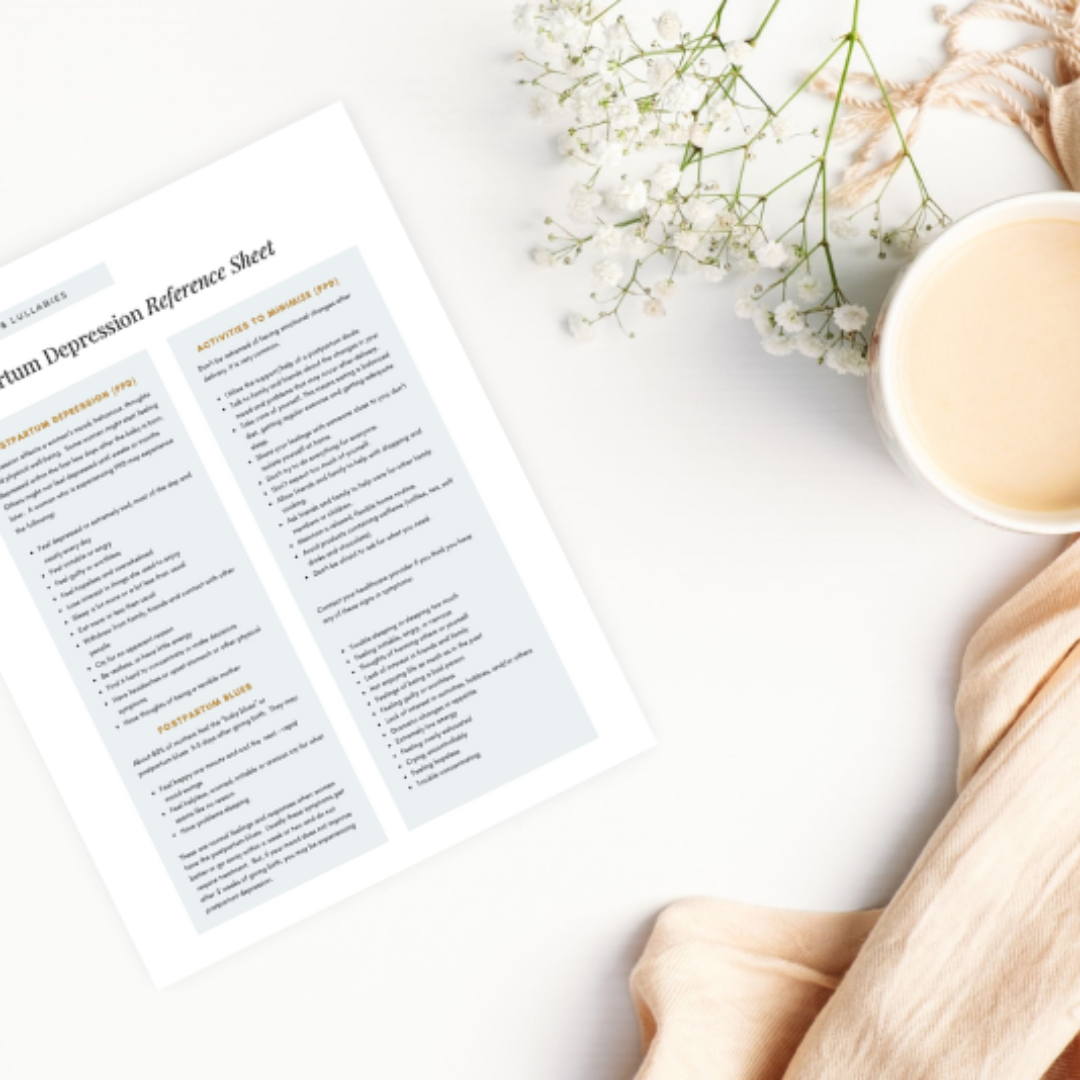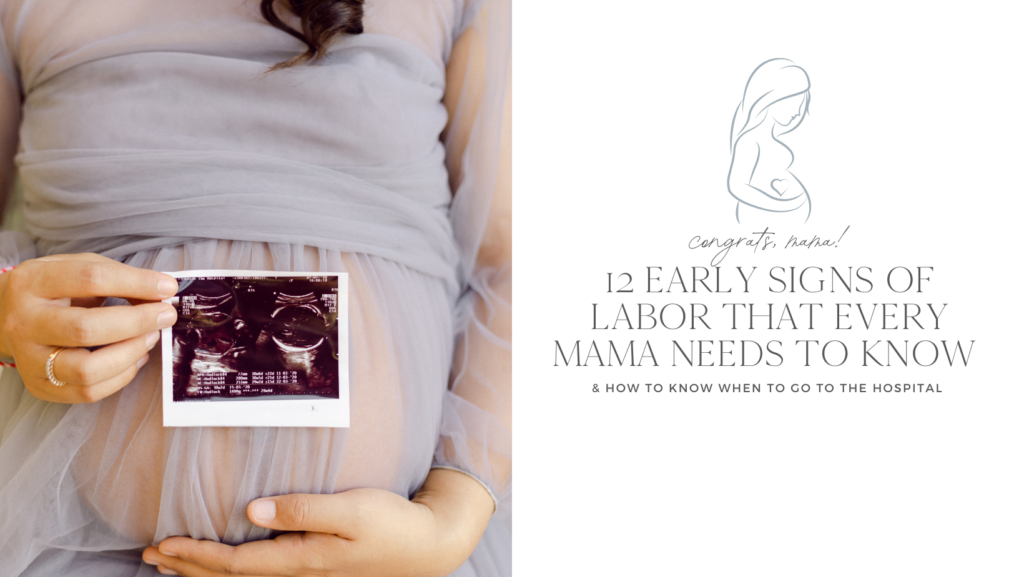
Are you getting ready to have a baby? Are you wondering what the signs and symptoms are that labor is starting soon? In this blog post, we will discuss the 12 most common signs that labor is 24-48 hours away. We will talk about how to know if you are experiencing these symptoms, and we will give tips on how to prepare for labor and when to go to the hospital.
Remember, every woman’s experience with labor is different, so don’t worry if your experience doesn’t match up exactly with what we describe here. Just try to relax and enjoy the process! Let’s dive in!
{We are a participant in the Amazon Services LLC Associates Program, an affiliate advertising program designed to provide a means for us to earn fees by linking to Amazon.com and affiliated sites. To learn more about affiliate links, click here!}
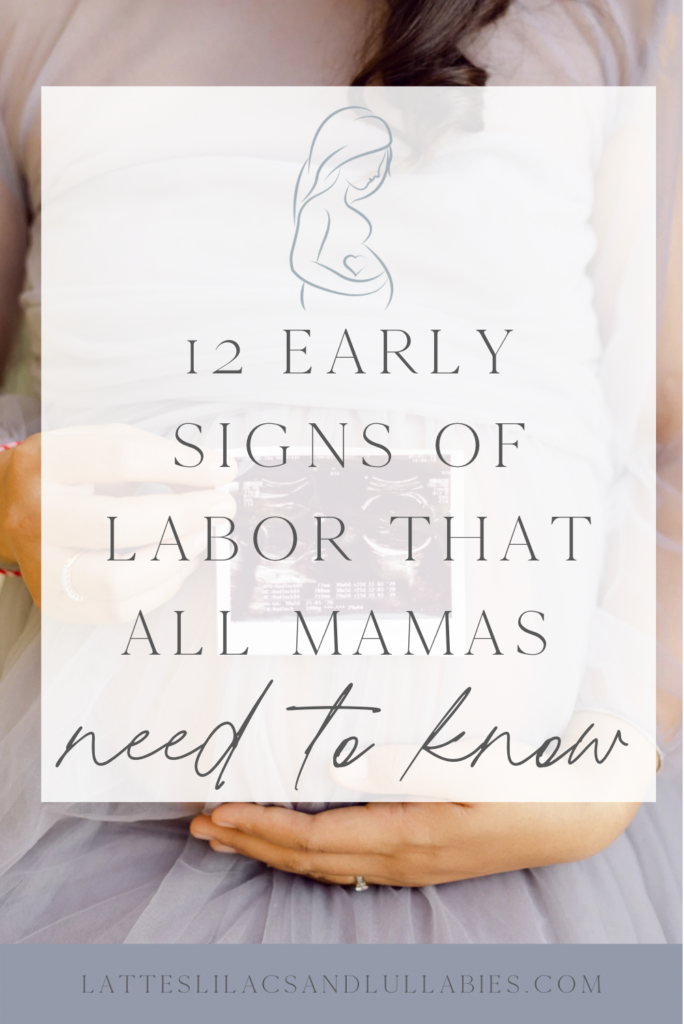
How Can You Tell If Labor Is Only A Few Days Away?
When you are pregnant, it is normal to wonder how you will know labor is near. There are some signs that labor could be getting closer, and it is important to be aware of them.
As labor nears, you may experience symptoms such as increased vaginal discharge, nesting instincts, and an increase in Braxton Hicks contractions. You may also feel tired and have a decrease in appetite.
It is important to talk to your doctor if you are experiencing any of these signs. They will be able to help you determine if labor is starting or if you are just experiencing normal pregnancy symptoms.
Remember, every pregnancy is different and there is no one-size-fits-all answer to this question. Trust your body and your instincts, and you will be able to tell when you are getting close to having your sweet baby.
Below are the 12 most common signs and symptoms that women often experience right before going into labor. We’ll discuss these in greater detail below as well as answer the most burning questions new moms and dads have about the labor experience.
The 12 most common signs that labor is 24-48 hours away…
- Loss of Mucus Plug
- Bloody Show
- Weight Loss
- Vaginal Discharge
- Nesting
- Extreme Fatigue
- Diarrhea
- Back Pain
- Contractions
- Ripened Cervix
- Water Breaking
- Nausea

Common Signs & Symptoms That Labor Is Only 24-48 Hours Away
As your due date approaches, you may start to experience some signs that labor is imminent. Here are the twelve most common signs that labor is only 24-48 hours away.
1. Loss of Mucus Plug
This is one of the earliest signs that labor could be starting soon. The mucus plug is a blob of mucus that seals the cervix during pregnancy. As labor nears, the cervix begins to dilate and the mucus plug is pushed out. You may see the mucus plug in your underwear or on the toilet paper when you wipe, or you may just notice an increased amount of vaginal discharge.
2. Bloody Show
Another early sign of labor is the bloody show. This is when you see a small amount of blood mixed in with your mucus plug. The bloody show can happen a few days before labor begins, or it can happen right when labor starts. If you have active heavy bleeding or are concerned at all, let your doctor or midwife know immediately. It never hurts to get their expert opinion when it comes to your and your baby’s health.
3. Weight Loss
You may also notice that you lose a few pounds as you get closer to your due date. This happens because your body is getting rid of extra fluid. You may also have less amniotic fluid around your baby as labor approaches.
4. Vaginal Discharge
You will probably notice an increase in vaginal discharge as you get closer to labor as well. This is normal and is caused by the increased blood flow to the area. The discharge may be clear, pink, or slightly blood-tinged. If you notice any odor, itching, or bright red discharge, let your doctor or midwife know ASAP.
5. Nesting
As labor approaches, you may feel the urge to nest. “Nesting” is a fancy term that means that you will want to clean your house and get everything ready for your baby’s arrival. Nesting is a normal part of preparing for labor, so go ahead and do as much as you can to get ready!
6. Extreme Fatigue
You may feel very tired in the days leading up to labor. This is normal and is your body’s way of preparing for the physical demands of labor and childbirth. Make sure to get plenty of rest so that you are well-rested when labor begins. Take that extra nap, mama! You need it to prepare for labor and delivery.
7. Diarrhea
Diarrhea can also be an early sign that labor is starting soon. Loose stool happens because the hormones that are released during labor can cause your bowels to move and relax. If you have diarrhea, make sure to drink plenty of fluids to stay hydrated. If you are concerned at all, let your doctor or midwife know.
8. Back Pain
You may experience increased back pain as labor approaches, because of the increased weight of your baby and the loosening of your ligaments. Back pain can be a sign that labor is starting or it can just be a normal part of pregnancy. Take it easy, rest, and do some simple stretching to ease this symptom. Your body is preparing for the baby’s birthday. Yay!
9. Contractions
Contractions are one of the most common signs that labor is starting. Contractions are when your uterus tightens and then relaxes. They usually happen every few minutes and become more frequent as labor progresses. You can start to log and time your contractions and let your doctor know when they become more frequent and consistent.
10. Ripened Cervix
As you get closer to labor, your cervix will begin to ripen. This means that it will soften and thin out in preparation for childbirth. You may not be able to feel this happening, but your doctor can check to see if your cervix is ripening during a vaginal exam.
11. Water Breaking
One of the most classic signs of labor is when your water breaks. This happens when the amniotic sac that surrounds your baby ruptures and the amniotic fluid leaks out. Your water may break as a gush or a trickle, and it may be clear, pink, or slightly blood-tinged.
If your water does break and is stinky or brown or black colored, call your doctor immediately. This could mean that baby had a bowel movement in the womb which could mean that baby is under some stress. Your doctor will want to monitor you closely.
12. Nausea
You may feel nauseous in the days leading up to labor. This is caused by the increased hormones in your body and is completely normal. If you are feeling nauseous, make sure to eat small meals and drink plenty of fluids.

FAQ’s About Labor & Delivery
Are you ready to dive into some of the most commonly asked questions regarding labor and delivery and when to go to the hospital? Most likely your questions will be answered here, but if you do have another question that you don’t see here, feel free to leave a comment below and I’ll get back to you ASAP.
Q: What is False Labor?
False labor is when you are having contractions (often called Braxton Hicks contractions), but labor does not progress. This can be frustrating, but it is important to remember that false labor is normal and happens to many women.
Q: What are some Early Labor Signs?
The most common early labor sign is contractions. Other early signs of labor include bloody show, loss of mucus plug, nesting, and increased vaginal discharge.
Q: How do you feel 24 hours before labor?
You may feel tired and have a decreased appetite in the days leading up to labor. You may also experience back pain, Braxton Hicks contractions, and loose stool.
Q: What time of day does labor usually start?
There is no set time when labor usually begins. It can be any time of the day or night.
Q: When to go to the hospital in labor?
You should go to the hospital when you are in active labor. This is when your contractions are regular and getting closer together. You should go to the hospital quickly if your water breaks and it’s malodorous and brown-tinged or you are experiencing a lot of vaginal bleeding.
Q: How do you know if you’re in labor?
The best way to know if you are in labor is to talk to your doctor. They will be able to help you determine if your contractions are regular and if they are getting closer together.
Q: Where do you feel contractions?
You will feel contractions in your lower abdomen and back. The pain can range from mild to severe, and they will come at consistent intervals and increase in intensity over time and get closer together.
Q: What do early contractions feel like?
Early contractions may feel like a tightening in your lower abdomen. They may be uncomfortable, but they should not be painful.
Q: What are Braxton Hick’s contractions?
Braxton Hicks contractions are when your uterus tightens and then relaxes. They usually happen every few minutes and become more frequent as labor progresses. Braxton Hicks contractions are a normal part of pregnancy and can help you prepare for labor.
Q: How often do Braxton Hicks contractions happen?
Braxton Hicks contractions usually happen every few minutes, but they can vary in frequency. If you are having regular contractions that are getting closer together, it is important to talk to your doctor.
Q: What do nesting instincts feel like?
Nesting instincts are when you get the urge to clean and prepare for your baby. This can be a normal part of pregnancy, but it can also be a sign that labor is near. If you are experiencing nesting instincts, make sure to take breaks and rest as much as possible.
Q: When should I start timing my contractions?
You should start timing your contractions when they become regular and are getting closer together. If you are unsure if your contractions are regular, it is important to talk to your doctor.
Q: What is the difference between Braxton Hicks and real contractions?
The main difference between Braxton Hicks and real contractions is that Braxton Hicks do not progress labor. Real contractions will become more frequent and intense as labor progresses. If you are unsure if you are having Braxton Hicks or real contractions, it is important to talk to your doctor.
Q: What is the bloody show?
The bloody show is when blood and mucus are discharged from the vagina. This can happen a few days before labor, or it can happen when labor starts.
Q: What are some signs that labor is nearing?
As labor nears, you may experience increased vaginal discharge, nesting instincts, and an increase in Braxton Hicks contractions. You may also feel tired and have a decrease in appetite. It is important to talk to your doctor if you are experiencing any of these signs.
Q: When should I call my doctor?
You should call your doctor if you are having regular contractions that are getting closer together, your water breaks, or you are experiencing a lot of vaginal bleeding.
Q: Weird signs labor is near?
There are a few weird signs that labor is near, such as an increase in vaginal discharge, nesting instincts, and an increase in Braxton Hicks contractions. You may also feel tired and have a decrease in appetite. It is important to talk to your doctor if you are experiencing any of these signs.
Q: Is swelling a sign labor is near?
Swelling is not usually a sign that labor is near. However, if you are experiencing severe swelling, it is important to talk to your doctor. Severe swelling can be a sign of preeclampsia, which is a serious condition. If you are experiencing severe swelling, make sure to call your doctor right away.
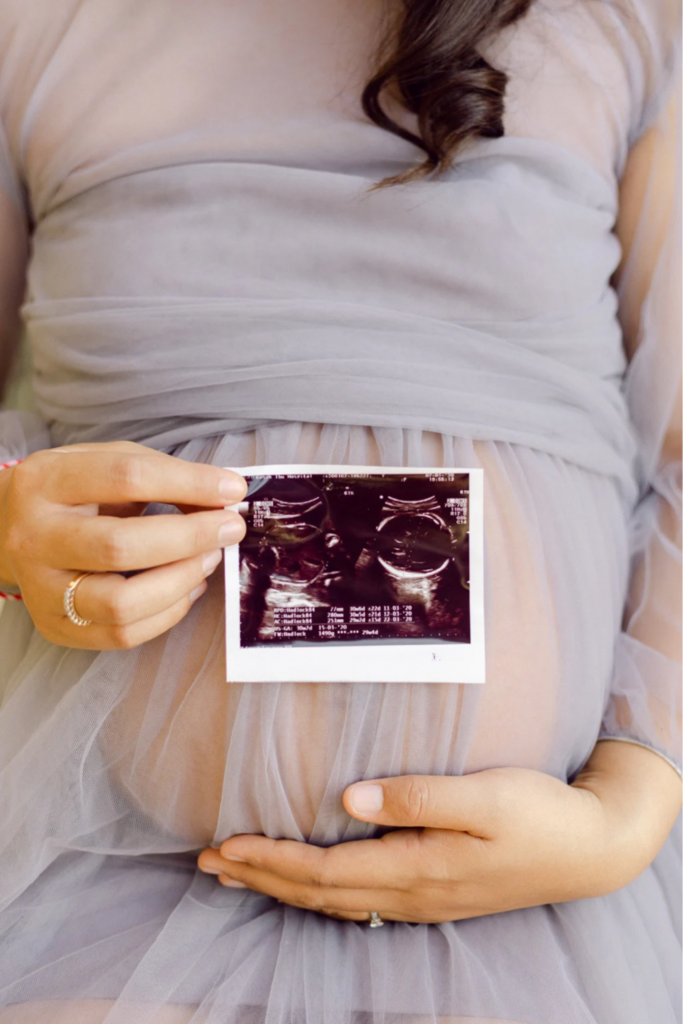
When Should I Call My Health Care Provider or Go To The Hospital?
If you think you may be in labor, it is important to contact your doctor right away. They will be able to help you determine if you are in labor and when you should go to the hospital. Labor can be a confusing and scary time, but remember that you are not alone. If you are experiencing any of these symptoms go to the hospital…
- If you think your water is broken (especially if it’s stinky and brown-tinged in color)
- If you are bleeding (more than light spotting)
- If the baby seems to be moving less than normal
- When your contractions are very uncomfortable and coming every 5 minutes
- If you are having signs of labor and are un 37 weeks gestation
As you get closer to your due date, keep an eye out for these signs that labor is only 24-48 hours away. If you experience any of these symptoms, it’s time to start getting ready for the big day!
We hope this article helped give you an idea of what to look out for as your due date approaches. If you have any questions or concerns, please don’t hesitate to reach out to us. We are here to help you every step of the way!
More Posts You’ll Love…
- Hospital Bag Checklist- Ultimate Guide To Packing Your Hospital Bag
- What the Hospital Provides After Birth
- Hospital Bag for Dad: What to Pack for the Hospital After Baby Is Born
- The Best Push Presents for Mom
- Second Trimester To Do List
- Ultimate Guide To Baby Essentials: What Parents Need in the 1st 3 Months
- Best Snacks To Pack In Hospital Bag
- Push Presents for Dad
- Most Unique Girls Names- 2022
Stephanie Wilson

